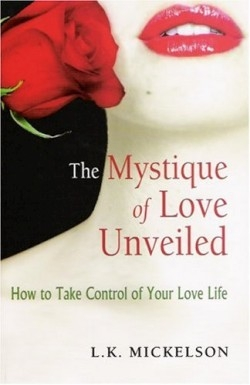
Mystique of Love Unveiled
Bearing cover art of a red rose next to glossy red lips, this book looks like a romance novel. Also, because the author is from Loveland, Colorado, one might think this is a paean to love. It isn’t. Instead, this thought-provoking book offers a cognitive-behavioral approach to four types of love: sexual, attachment, intellectual, and emotional. Mickelson defines “love” as anything that gives pleasure.
He maintains that “the emotion-called-love” is basically selfish and exists to ensure survival, either of the individual or the species. That Mickelson went from teaching psychology to the financial services industry perhaps sheds light on how he developed his pragmatic theories. Readers who can likewise focus on practical matters will appreciate his approach.
According to the author, the pleasurable hormones associated with sexual love and attachment love are necessary for the survival of the species. They are the primitive brain’s “reward system.”
Intellectual love exists when one can say “I like you” rather than “I love you.” However, says the author, most people are fooling themselves. When he monitored personal ads, he discovered that while many people claim to be looking for someone who is kind, funny, and wholesome, no one actually dates those people unless they are also sexy, athletic, or financially secure.
Mickelson outlines a seven-step process for “catching a lover.” His formula relies heavily on becoming a predictable part of another’s schedule, thus getting the object of one’s affections to become time-dependent. Once the time-dependency is established, a threat to it causes an emotional response that is called love, for lack of a better explanation of the feeling. The author asserts that all bad feelings are essentially the same. One may choose to call the emotion anger or depression or broken-heartedness; however, the biological root is an overabundance of energy in the body caused by a threat to survival.
The author concludes that love is not itself an emotion. What passes as emotional love is actually disrupted time-dependence and the emotions it can engender, such as jealousy. Relating his experience watching people for many years making poor decisions based on their feelings, Mickelson suggests that only sexual, attachment, and intellectual love should figure into the selection of a mate.
What’s his answer? Proceed with caution. Don’t buy into the “opposites attract” theory. Avoid becoming too time-dependent. Over the long haul, only a person’s behavior counts.
Reviewed by
Frances O. Thomas
Disclosure: This article is not an endorsement, but a review. The publisher of this book provided free copies of the book to have their book reviewed by a professional reviewer. No fee was paid by the publisher for this review. Foreword Reviews only recommends books that we love. Foreword Magazine, Inc. is disclosing this in accordance with the Federal Trade Commission’s 16 CFR, Part 255.
